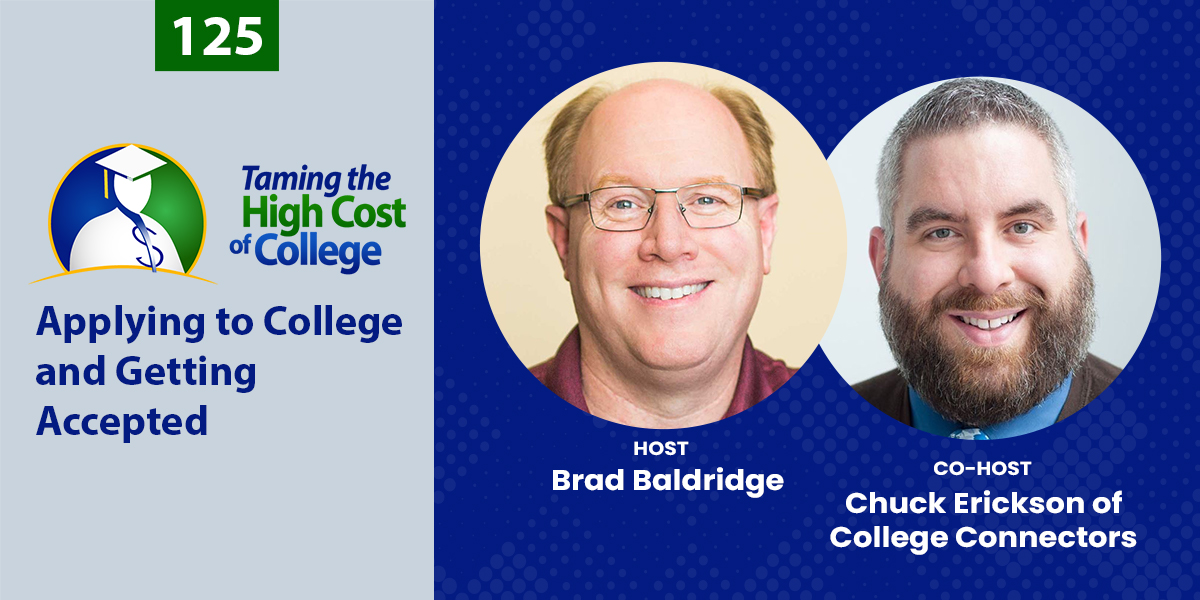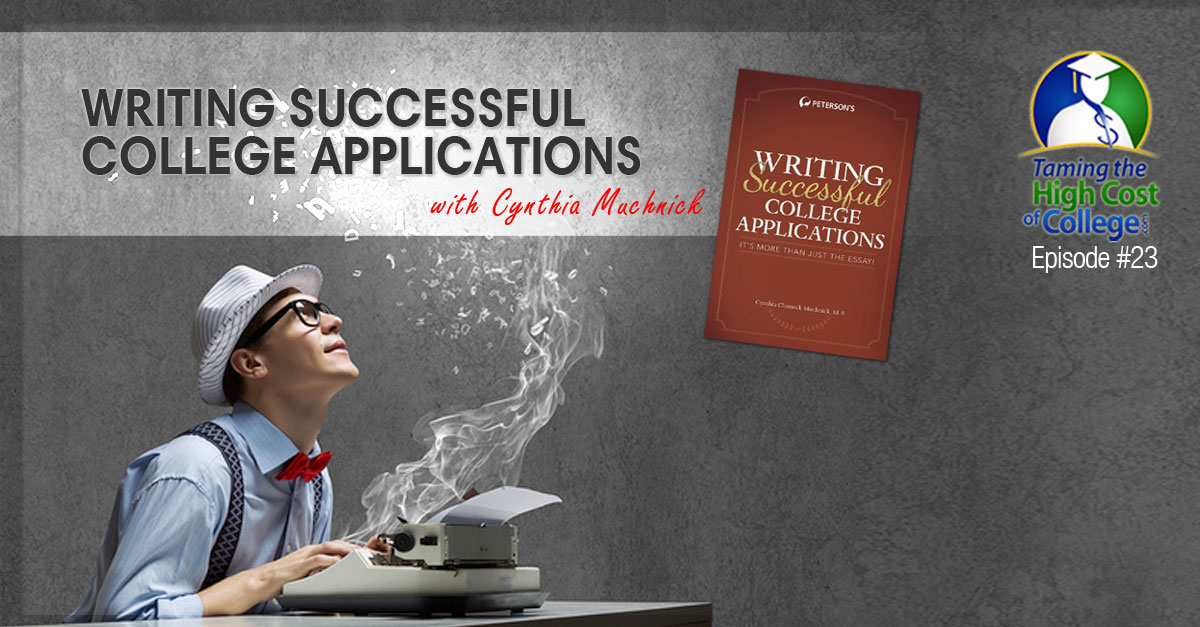Getting accepted at your preferred college isn’t just a matter of academics. You need to understand the many different qualifications that schools consider and which ones are more important than others. Join Brad and his guest, Chuck Erickson, as they share their inside tips and insights on how to get accepted to college. Listen Now…
college applications
TTHC23 – Writing Successful College Applications Interview with Cynthia Muchnick, Author of “Successful College Applications: It’s More Than Just the Essay”
We’ve talked a lot about the college essay, but today we’re putting it all into perspective. College admissions professional and author Cynthia Muchnick joins us to talk about her book, “Writing Successful College Ap-plications: It’s More Than Just the Essay” and we discuss what not to overlook, and how to use the book to set […]



